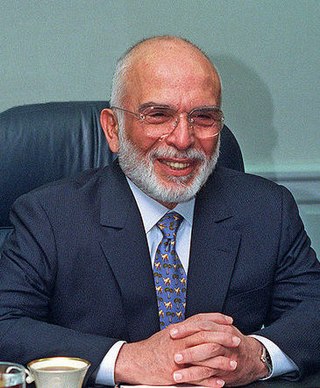
Hussein bin Talal was King of Jordan from 11 August 1952 until his death in 1999. As a member of the Hashemite dynasty, the royal family of Jordan since 1921, Hussein was a 40th-generation direct descendant of the Islamic prophet Muhammad.

Abdullah II bin Al-Hussein is King of Jordan, having ascended the throne on 7 February 1999. He is a member of the Hashemite dynasty, who have been the reigning royal family of Jordan since 1921, and is considered a 41st-generation direct descendant of the Islamic prophet Muhammad.

Ghazi ibn Faisal was King of Iraq from 1933 to 1939 having been briefly Crown Prince of the Kingdom of Syria in 1920. He was born in Mecca, the only son of Faisal I. He died in a car crash in 1939.
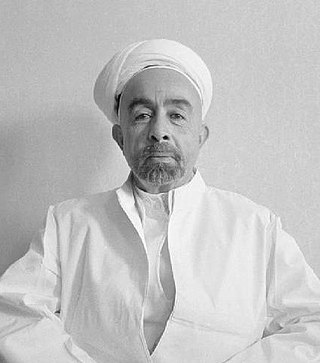
Abdullah I bin Al-Hussein was the ruler of Jordan from 11 April 1921 until his assassination in 1951. He was the Emir of Transjordan, a British protectorate, until 25 May 1946, after which he was king of an independent Jordan. As a member of the Hashemite dynasty, the royal family of Jordan since 1921, Abdullah was a 38th-generation direct descendant of Muhammad.

Talal bin Abdullah was King of Jordan from the assassination of his father, King Abdullah I, on 20 July 1951 until his forced abdication on 11 August 1952. As a member of the Hashemite dynasty, the royal family of Jordan since 1921, Talal was a 39th-generation direct descendant of Muhammad.
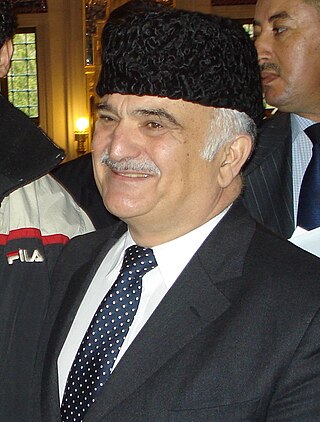
Prince El Hassan bin Talal is a member of the Jordanian royal family who was previously Crown Prince from 1965 to 1999, being removed just three weeks before King Hussein's death. He is now 20th in line to succeed his nephew King Abdullah II.

Hamzah bin Al Hussein, is the fourth son of King Hussein bin Talal of Jordan overall and the first by his American-born fourth wife, Queen Noor. He was named Crown Prince of Jordan in 7 February 1999, a position he held until his older half-brother, King Abdullah II, rescinded it in 28 November 2004. He is a member of the Hashemite dynasty, the royal family of Jordan since 1921, and is a 41st-generation direct descendant of Muhammad.
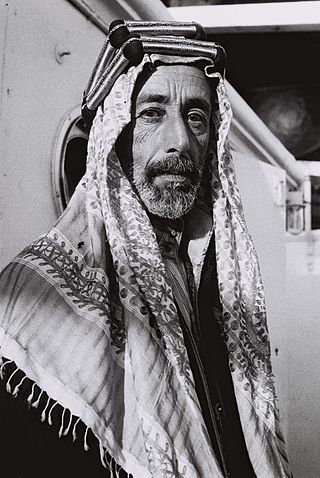
Ali bin Hussein, was King of Hejaz and Grand Sharif of Mecca from October 1924 until he was deposed by Ibn Saud in December 1925. He was the eldest son of King Hussein bin Ali and a scion of the Hashemite family. With the passing of the kingship from his father he also became the heir to the title of caliph, but he did not adopt the office and the style of caliph.

Faisal bin Fahd Al Saud was the president of Youth Welfare in Saudi Arabia from 1975 to 1999 and a member of House of Saud.
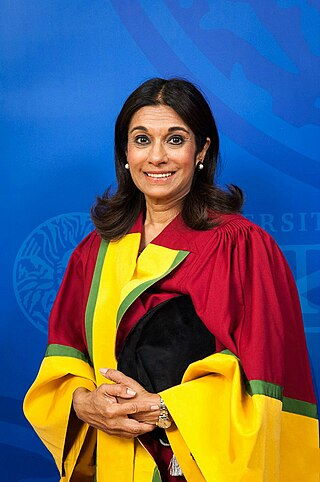
Princess Sarvath El Hassan is a Jordanian royal and the wife of Prince Hassan bin Talal of Jordan. She was born in Calcutta on 24 July 1947, to a prominent Muslim family, the Suhrawardy family of the Indian subcontinent.
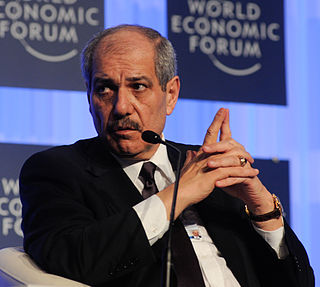
Fayez Tarawneh was a Jordanian independent politician, who served twice as the 31st Prime Minister of Jordan, and also as Chief of the Royal Hashemite Court.

Hussein bin Abdullah is Crown Prince of Jordan as the eldest son of King Abdullah II and Queen Rania. He is a member of the Hashemite dynasty, the royal family of Jordan since 1921, and is considered to be 42nd-generation direct descendant of the Islamic prophet Muhammad.

Faisal II was the last King of Iraq. He reigned from 4 April 1939 until July 1958, when he was killed during the 14 July Revolution. This regicide marked the end of the thirty-seven-year-old Hashemite monarchy in Iraq, which then became a republic.

Bassem I. Awadallah is a Jordanian public figure. He is the chief executive officer of Tomoh Advisory, based in Dubai, UAE and serves as a member of the board of directors of Al Baraka Banking Group in Bahrain. In 2006 Awadallah was appointed as the director of the Office of King Abdullah II and was appointed chief of the Royal Hashemite Court of Jordan in 2007.

Hashemite custodianship refers to the Jordanian royal family's role in tending Muslim and Christian holy sites in the city of Jerusalem. The legacy traces back to 1924 when the Supreme Muslim Council, the highest Muslim body in charge of Muslim community affairs in Mandatory Palestine, chose Hussein bin Ali as custodian of Al-Aqsa. The custodianship became a Hashemite legacy administered by consecutive Jordanian kings.

Jordan–Kurdistan Region relations are bilateral relations between Jordan and the Kurdistan Region. Jordan is represented in Kurdistan Region through a consulate general in Erbil since 2011, while Kurdistan Region has no representation in Jordan. Relations are described as historical, dating back to the times of Mullah Mustafa Barzani and King Hussein bin Talal. As a response to the unilateral Kurdish independence referendum in September 2017, Jordanian Foreign Minister Ayman Safadi stated that the issue was an internal Iraqi affair and that Jordan did not interfere in other countries' domestic affairs. The Jordanian Consul General in Erbil described ties as "strong and solid" in August 2018.

Mishal Al-Ahmad Al-Jaber Al-Sabah is the Emir of Kuwait. Mishal spent most of his career in Kuwait's security and intelligence apparatus. Prior to becoming Emir at age 83, he was the oldest crown prince in the world.

On 3 April 2021, Jordanian authorities arrested 19 people, including Prince Hamzah, who was put under house arrest. Arrests also included the prince's chief of staff and other figures associated with him, in addition to a member of the royal family, Sharif Hassan bin Zaid, and Bassem Awadallah, former Chief of the Royal Hashemite Court and Jordan's former envoy to Saudi Arabia.
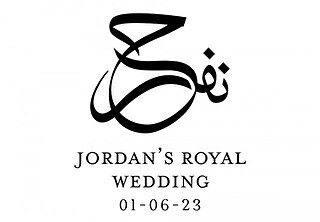
The wedding of Al Hussein bin Abdullah, Crown Prince of Jordan, and Rajwa Al Saif took place at Zahran Palace in Amman, Jordan on 1 June 2023.
Khaled bin Musaed bin Saif bin Abdulaziz Al-Saif was a Saudi businessman and watch enthusiast. He was the head of the Al Saif Group, which works in the fields of health, care, and construction.





















